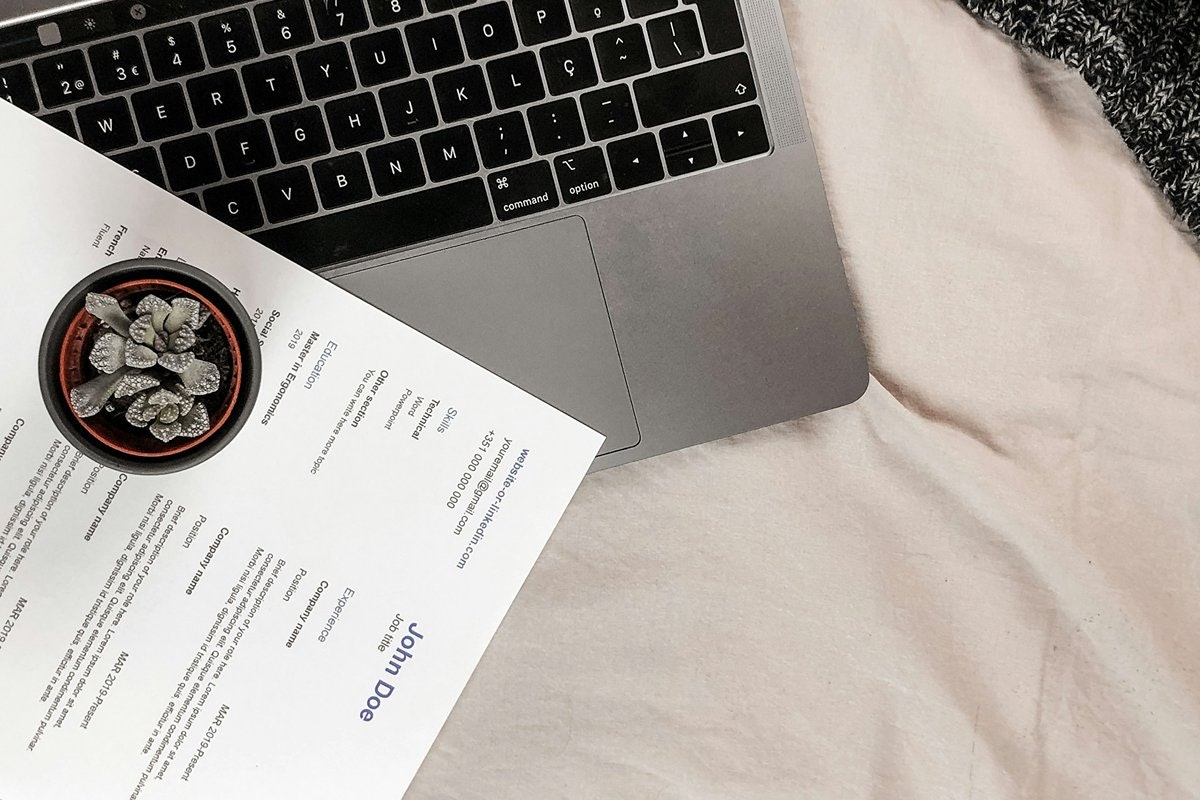How to write a resume that stands out: tips for latinos in Australia
Looking for a job and not succeeding? Read on for a collection of our best tips and tools to build a strong Australian CV and win more interviews!

By:
LINA AVILA HENAO
Last Updated:
Jun 16, 2025
Tags:
#work
In this article
We all have done the tedious task of writing a resume to apply for a job with a lot of effort and many times not even being noticed. There is always doubt about what is the cause for not being contacted, and then the question emerges, what am I doing wrong? To avoid this to happen, follow our tips and build a great resume. In this article we will give you all the tools to build your resume from cero.
These tips will be helpful to apply especially for professional jobs but you can tweak the information and use it if you need to build a resume to work as casual.
Let's start saying that the word for Curriculum Vitae in english is “resume” (from the French and the pronunciation is with the accent in the last syllable.
In Australia the way that resumes are built might differ from the way they are elaborated in your country and here we will tell you in which areas are different and how to integrate your experience, knowledge and skills to look like a very promising candidate for the jobs.
Tip #1: Australian qualifications, accreditations or experience first
The truth has to be said. Employers in Australia do not trust much in your studies, qualifications or experience overseas so try to put the studies and experience done in Australia first, start from the newest to the oldest and not the opposite.
What to do if you don't have any Australian experience?
Well, in that case, just put your country’s experience very organized. However, if you really want to get more chances then try to do a volunteer job at some Australian organization, that would level up your resume.
Tip #2: Less is more
You might have a resume of 4 pages that worked very well in your country. Well let me tell you that in Australia any job hunter, recruiter or human resources department is going to read that amount of pages. Try to synthesize as much as you can your experience without leaving important facts behind, so be concise.
An optimal length would be two pages, that gives the reader a full scope of who you are, your experience and skill set.
Tip #3: Matching is essential
Match the skills from your resume with the ones that appear in the job description. It seems a bit silly but this is very important because you are basically saying that you are a great match for the role and that you possess the same skills that they are looking for.
Research your past job titles (from your country) on the main searchers. You can rely on seek.com.au or Indeed and see if they exist in english. If not, check the most common job titles in English for those roles and change it.
For example, my previous job titles in Colombia were Microbiology analyst, Microbiologist assistant but in Australia I was applying for a laboratory technician position then I changed the name of my job title to make it match with the job description but experience was the same one.
Tip #4: No photo needed
In Australia it is not necessary to put a photo on your resume. Also, you do not need to put your exact address. It is enough saying the street and neighbourhood but not apartment details or number of the street.
The most important facts in the header are name, email, phone, and LinkedIn profile URL link if you are applying to a professional role. Do not just copy and paste the first link that appears with your name on LinkedIn. Go to your profile and in the right top corner there is a tap that says Public profile and URL, that is the one, you can also customise it.
Tip #5: Make it visually appealing
Try to follow patterns and be consistent. If you are using lines for separating your education from the rest of categories, then try to do it across the whole document. Also be careful with the spacing, use the same spaces between the titles and paragraphs. Misalignments on the spacing look bad and can lead to a not being taken seriously.
It is still unknown if the resumes are read by a machine or by a human. For this reason, it is better to align text and headings properly to avoid rejections. However, don't spend a crazy amount of time on this one, just make it look nice and clean.
Tip #6: Watch out with translating exactly.
Do not try to translate to the letter all the information on your current CV in spanish. Many things do not have an exact translation in English and sometimes the person who is assessing the CV does not even know what that is. We know that you were a MacGyver in your country but here in Aus you will probably start from the basics and then escalate in your career.
Tip #7: Chronological order of the work experience
Start with your experience in Australia. I know that the logic would start from the oldest to the newest, but remember that the person who is reading your resume is not going to hang around that much. So you better start with something that is going to grab the attention of the examiner. In some cases people with a lot of experience do not even put in which year they did what job.
Extra tip: Focus your experience on the job you are applying for
If you are going for a professional role, do not list three or more cleaning and hospitality jobs, because the application is going to loose focus and credibility. All the jobs listed on your resume should be aligned with the role that you are applying for.
Likewise if looking for a bar job, do not put your PhD and important jobs back home because it would not be relevant for the job of being a bartender for example.
Tip #8: Good overview section at the top is critical
Try to tell your professional job experience as a story in the overview. Talk about how many years of experience you have and which fields are your area of expertise. You should list your most relevant achievements of your career.
Also briefly mention your skills, briefly name your most relevant studies and close with one or two lines referring to what is your main focus at the moment. For example: I am focusing on keep developing my career whilst working on a new fulfilling role.
Think about you as a successful professional and not as a robot applying in bulk to many roles.
Tip #9: Explain your job experience naming your achievements.
Describe your experience (what tasks and responsibilities you have done at your previous workplace) but showing what you have achieved doing that.
Select concrete information for example numbers: sales increased by 5% when you implemented a certain new sales strategy and you were recognised for that.
Tip #10: How to finish?
At the end I suggest finishing the resume with additional information about you.
For example, I am fluent in Spanish and in English, love doing crosswords, love to play chess, avid traveler or if you have something related to the job that is also your hobby or passion even better. if you have a long visa or full rights to work, make sure you say it.
Tip #11: What about the references?
Well in this case I personally do not recommend writing the references in the resume. I prefer to write references upon request, which means that you will give them your references if they require them.
I recommend that you actually contact the people that you are going to use as reference and let them know that they probably will be contacted.
If possible, use people from Australia as reference. It is very unlikely that they will reach out to references from your own country.
Tip #12: Talk about your soft skills
Give importance to technical skills directly related to your job but also to the soft skills. Many companies and government institutions care more about people able to properly manage Excel or enter data on a database or being good communicators than something really specific and technical. This is because they are able to train you on technical skills.
Last tip: get a native speaker to proof-read for you!
Many CVs that we have seen have some really silly and minor spelling, grammar, or style mistakes that do not look good or proper on a professional resume to the eyes of someone that is assessing the document. A native speaker will catch this immediately! This may seem like a small thing but it will help you to have a well written resume which is critical to make you seem hireable.
To finalise
After reading these tips you will be ready to jump and write your CV. Have in mind that one way to know if you are building your resume properly is when you are being selected for interviews. However, do not get discouraged if you have sent a few CV’s and have had no results.
In Australia, some processes are very slow and the companies might call you after two months of sending your resume.
Enjoy the process and we will see you in our next post of preparing for interviews.


